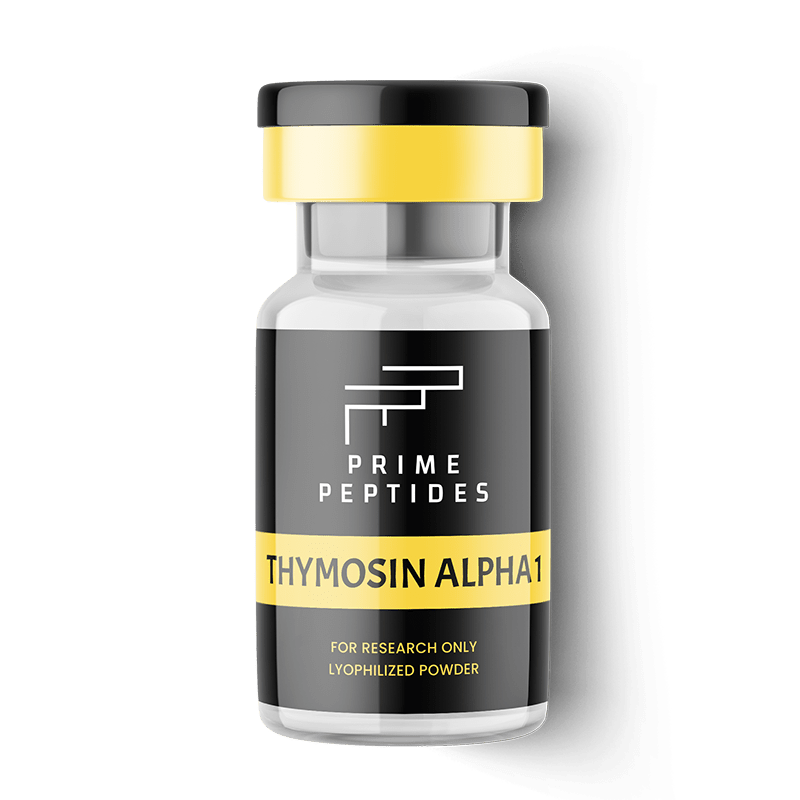Details
Details
Research
Research
Mechanism of Action
Mechanism of Action
- BAC Water Sold Separately
- Syringes Not Included
- Peptides sold in powdered form
Prime Peptides™
Thymosin Alpha 1
Thymosin Alpha 1
All products are for laboratory research purposes only. Not for human consumption, medical, or veterinary use. Prime Peptides does not condone or support the use of peptides outside of controlled scientific research. By purchasing, you acknowledge that you are a qualified researcher or institution. You must be 21 or older.
View full detailsCouldn't load pickup availability
What is Thymosin Alpha 1?
Thymosin Alpha 1 is a peptide that researchers are studying for its potential role in boosting the immune system. It naturally occurs in the body and helps regulate the immune response, which can assist in fighting infections and diseases. Scientists are exploring its potential for improving immune function, especially in people with weakened immune systems. Thymosin Alpha 1 is intended only for scientific research purposes.
Key Details
| Property | Details |
|---|---|
| Chemical Formula | C129H215N33O55 |
| Molecular Mass | 3108.32 g/mol |
| CAS Number | 62304-98-7 |
| Vial Size | 3 ml |
| Vial Contents | Lyophilized Powder |
What is Thymosin Alpha 1?
Thymosin Alpha 1 is a peptide that researchers are studying for its potential role in boosting the immune system. It naturally occurs in the body and helps regulate the immune response, which can assist in fighting infections and diseases. Scientists are exploring its potential for improving immune function, especially in people with weakened immune systems. Thymosin Alpha 1 is intended only for scientific research purposes.
Key Details
| Property | Details |
|---|---|
| Chemical Formula | C129H215N33O55 |
| Molecular Mass | 3108.32 g/mol |
| CAS Number | 62304-98-7 |
| Vial Size | 3 ml |
| Vial Contents | Lyophilized Powder |
Details
Details
Research
Research
Mechanism of Action
Mechanism of Action
- BAC Water Sold Separately
- Syringes Not Included
- Peptides sold in powdered form

Legal Disclaimer
For research purposes only. Not for consumption, clinical use, or diagnostic purposes. Buyer assumes all responsibility for proper handling and use in compliance with applicable regulations.
Certificate of Analysis
Top Quality Peptides
We offer the most pure and trustworty source of peptides for all of your research needs.








